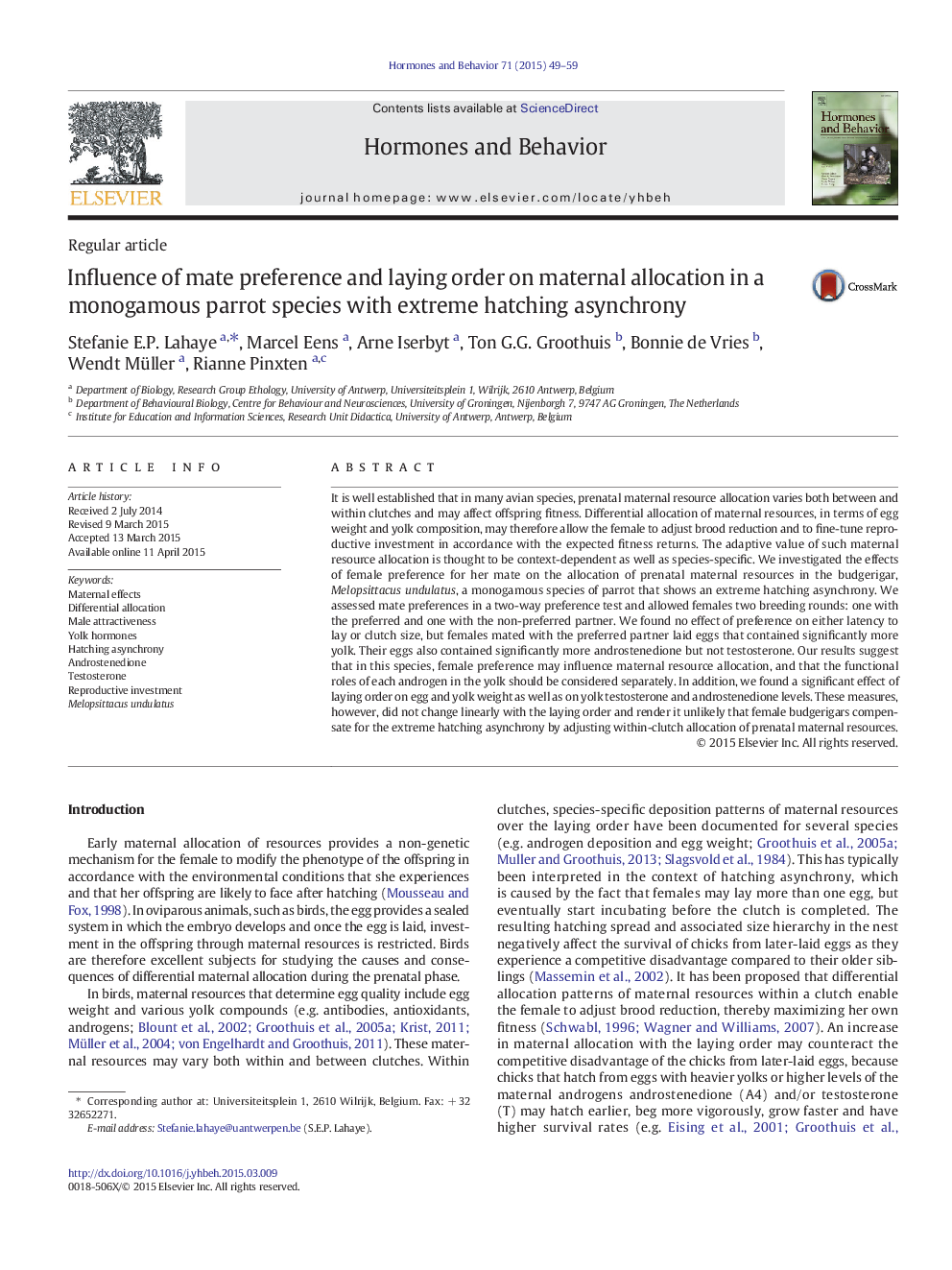ترجمه فارسی عنوان مقاله
تأثیر ترجیحات همسر و سفارش تخمگذاری در تخصیص مادر در گونه های طوطی تک همسری با ناهمزمان افراطی جوجه ریزی
عنوان انگلیسی
Influence of mate preference and laying order on maternal allocation in a monogamous parrot species with extreme hatching asynchrony
| کد مقاله | سال انتشار | تعداد صفحات مقاله انگلیسی |
|---|---|---|
| 36214 | 2015 | 11 صفحه PDF |
منبع

Publisher : Elsevier - Science Direct (الزویر - ساینس دایرکت)
Journal : Hormones and Behavior, Volume 71, May 2015, Pages 49–59
ترجمه کلمات کلیدی
اثرات مادران - تخصیص دیفرانسیل - جذابیت مرد - هورمون های زرده - جوجه ریزی ناهمزمان - آندروستندیون -
کلمات کلیدی انگلیسی
Maternal effects; Differential allocation; Male attractiveness; Yolk hormones; Hatching asynchrony; Androstenedione; Testosterone; Reproductive investment; Melopsittacus undulatus

